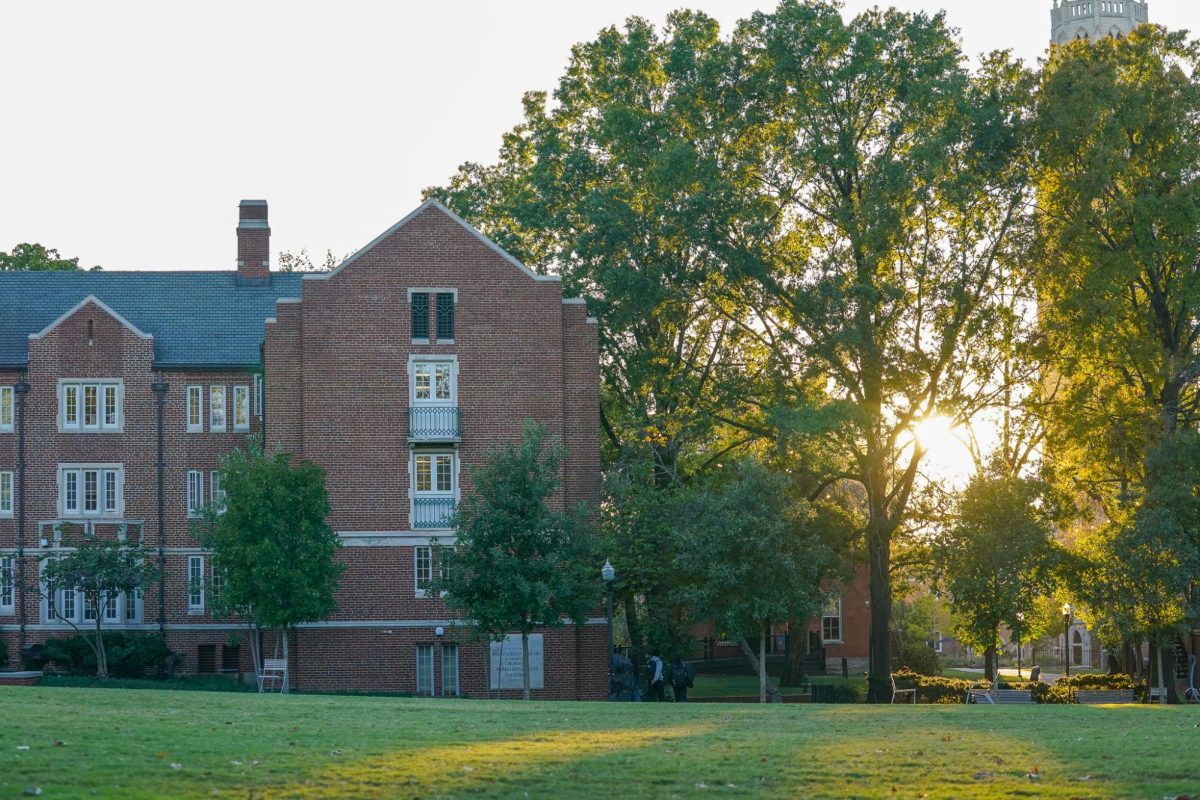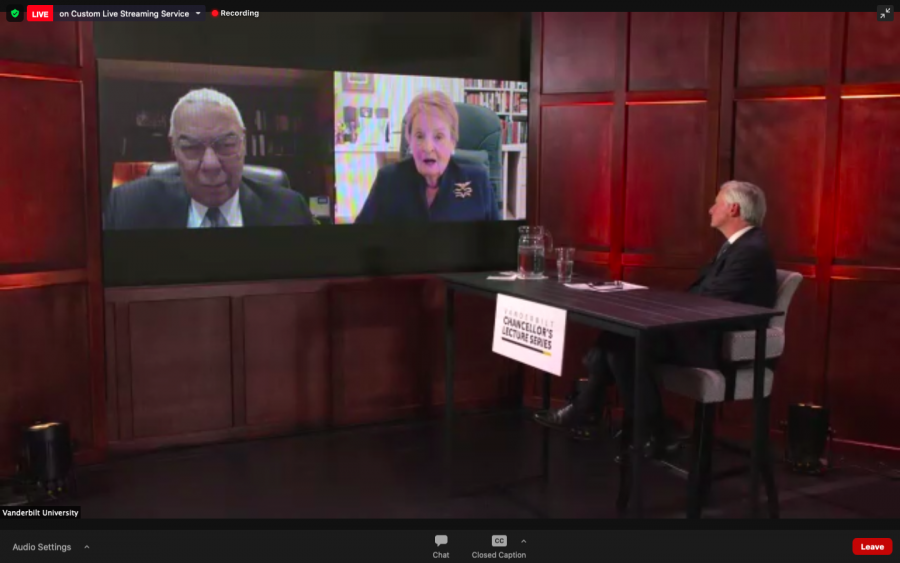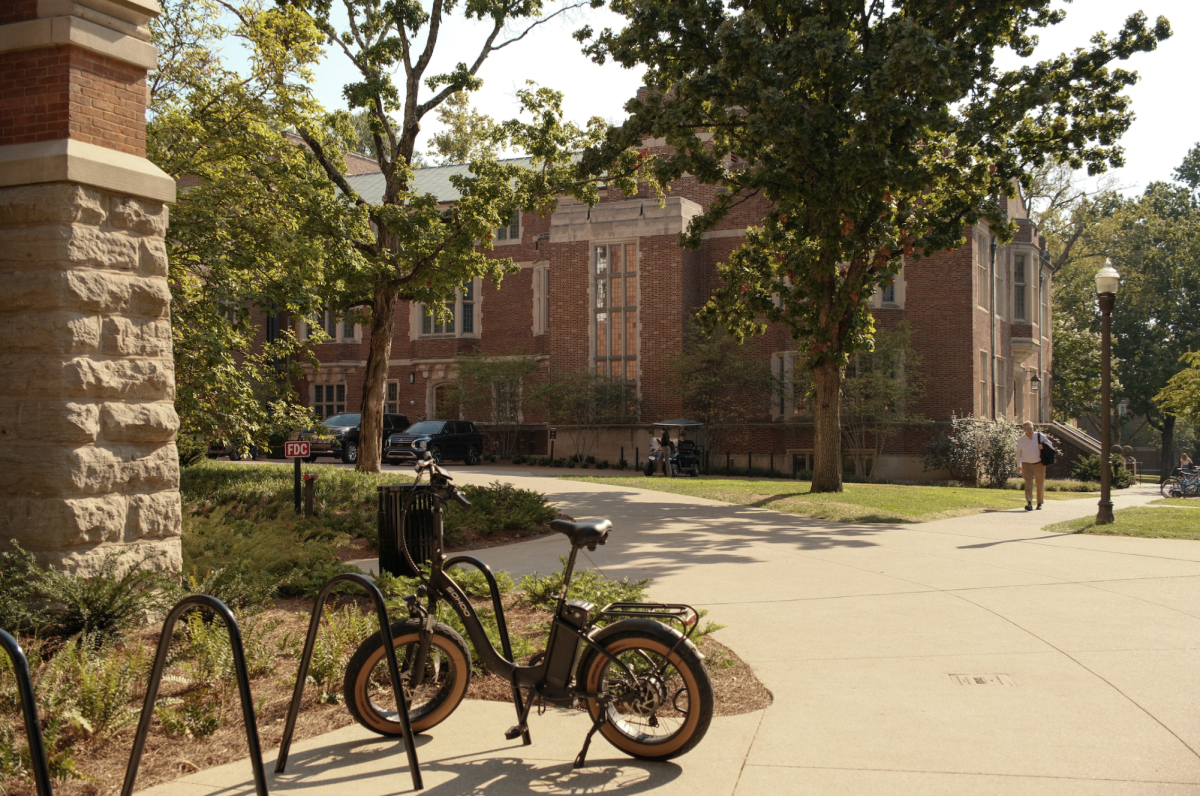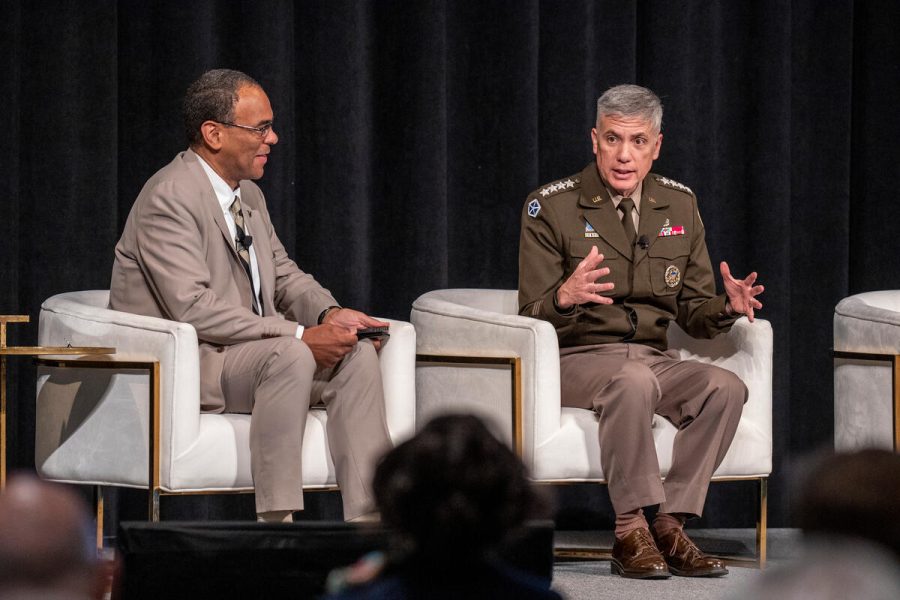The Vanderbilt Institute of National Security and the Department of Political Science recently announced a new minor in national security, an interdisciplinary program aimed toward students pursuing careers in the areas of national security, foreign policy and global affairs. The minor will be available for students to declare beginning fall 2025.
The minor emphasizes two areas of study: security studies, global affairs and foreign policy; and skills in data science or formal strategic analysis. The minor requires 18 total credit hours, three of which will comprise prerequisite coursework, and six and nine credit hours will include analytical method courses and electives, respectively.
The analytical method courses feature two potential tracks: data science and formal theory. The data science track will require PSCI 1104 Introduction to Quantitative Political Science and an additional data science course, while the formal theory option will require PSCI 2259 Political Strategy and Game Theory, as well as PSCI 3229 Strategy and International Politics. The electives offered include courses in the fields of international relations, war and political economy, among others.
According to the director of the national security minor, Katherine Carroll, the minor was developed to provide students from diverse academic backgrounds with the skills and historical and theoretical knowledge of national security that are in high demand among government and private sector jobs. Students in the minor will also receive support from the Vanderbilt Institute of National Security, which will aid them in finding and potentially securing jobs and internships.
General Paul Nakasone, founding director of the Institute of National Security, said he believes the study of national security will be beneficial for Vanderbilt students because of its relevance to peoples’ everyday lives.
“The study of national security is valuable to Vanderbilt students because it impacts every aspect of our lives, from the economy and military to emerging threats and future opportunities,” Nakasone said in a message to The Hustler. “Gaining a deeper understanding of these issues equips students with the knowledge and skills to contribute meaningfully to a safer and more secure future.”
Carroll shared how she believes the program aligns with the goals of the Institute of National Security.
“One of the key pillars of the institute is to educate — to prepare the future national security professionals that the nation needs,” Carroll said in a message to The Hustler. “This includes people who can code and know about foreign policy, but we are also producing future strategic thinkers.”
Political science professor Brett Benson described the political science department’s main objective in offering the minor as “leverag[ing] Vanderbilt’s expertise” in the fields of foreign policy and data science to prepare students to tackle issues of international security.
“With top experts in these fields, the minor equips students with interdisciplinary knowledge and analytical tools,” Benson said in a message to The Hustler. “By blending policy, strategy, cybersecurity and data science, Vanderbilt is positioning itself to prepare the next generation of leaders in national security, intelligence and international affairs.”
John Sides, chair of the political science department, shared his vision for students pursuing the minor in a message to The Hustler.
“The national security minor will enable students to draw on the political science department’s strength in the study of international conflict and security, and [it will] also provide them [with] a foundation for work in the national security and policy community after graduation,” Sides said.
Sophomore Devin Crawford, an Air Force Reserve Officers’ Training Corps cadet, expressed interest in the national security minor.
“I hope to be an intelligence officer right after graduation. Being in [the] intel[ligence field] — a big part [of it] — is understanding national security and understanding how to preserve and improve it,” Crawford said. “When this minor came out, I thought that this was perfect; number one, because of my evolving academic interest, and, number two, because of what I envision doing professionally.”
Nakasone shared how the national security minor will hone students’ critical thinking and technical skills and prepare them to navigate national security challenges in the future.
“We hope the national security minor inspires students and the broader university community to pursue service in this vital field,” Nakasone said. “By equipping students with technical skills, policy knowledge and critical thinking, the program will help develop the next generation of leaders dedicated to addressing complex national and global security challenges.”









